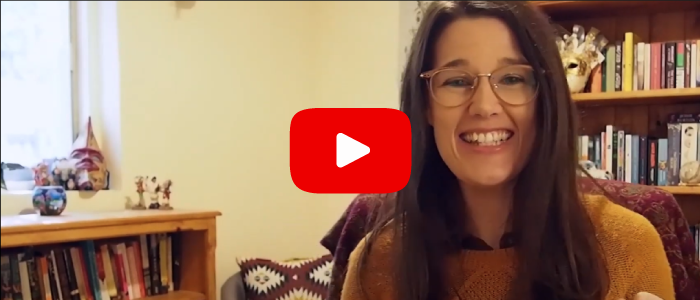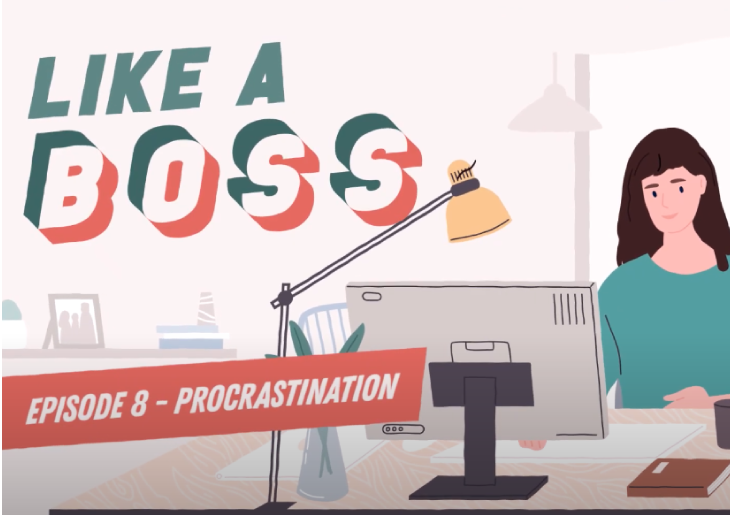
Procrastination is when we put off doing something that needs to be done. Duh, right? But while the explanation is simple, dealing with procrastination is a different matter entirely.
I’m guilty of it, your lecturers are guilty of it, and your fellow students are guilty of it. In fact, according to one study, 95% of students report some degree of procrastination, with 50% of students reporting consistent and problematic procrastinating (Steele 2007).
During my PhD, I became really good at what I would call ‘proactive procrastination’. This was when I’d do tasks related to my PhD, like admin, replying to emails or checking references, but it wasn’t writing, which was what I actually needed to be doing. This was a problem, because while I felt like I was being productive, I wasn’t doing the right work. Not all procrastination just looks like browsing the internet or watching too much TV!
Why do we procrastinate?
The question of why we procrastinate is very complex – far more complex than I can address in this vlog. What’s important to know, though, is that procrastination does not necessarily equate to laziness or even to poor time management skills. It’s actually a way of coping with challenging and negative emotions. These emotions can be triggered or enhanced by tasks that make us feel bored, anxious, frustrated, resentful or insecure.
We might worry about our ability to perform well, the consequences of not achieving a particular result, or how we’ll tackle a problem. This can be as simple as, ‘I don’t know where to find good resources for this report’, or ‘I don’t find this topic interesting’. Or, it can be far more deep-seated: ‘I don’t think I’m smart enough for this’, or ‘what if I do a bad job?’ When we’re confronted with these challenges, we’re compelled to find the easiest solution to the problem: avoid the task. It’s only human to not want to confront negative emotions. Plus, most of us are already dealing with a huge range of very complex emotions in response to Covid-19, so it’s not surprising that procrastination might become an even bigger problem than normal at the moment.
However, by procrastinating, we’re really just making things worse. Not only do we not complete the task, we compound our negative feelings. We start to blame ourselves, feel guilty, and struggle with low self-esteem. It can become a vicious cycle of negativity.
If you feel like you’re really struggling to overcome this cycle, I highly recommend Dr Gareth’s Studyology series for some techniques to deal with this discomfort and panic. A new Studyology program will be starting on Thursday 21st of May, so join the Oasis Online FLO page for those sessions and for information about upcoming Mindfulness for Academic Success sessions. Gareth has also developed an entire Procrastination Workbook to help you understand more about what procrastination is, reflect on your own habits and priorities, and learn some practical techniques to help you tackle it.
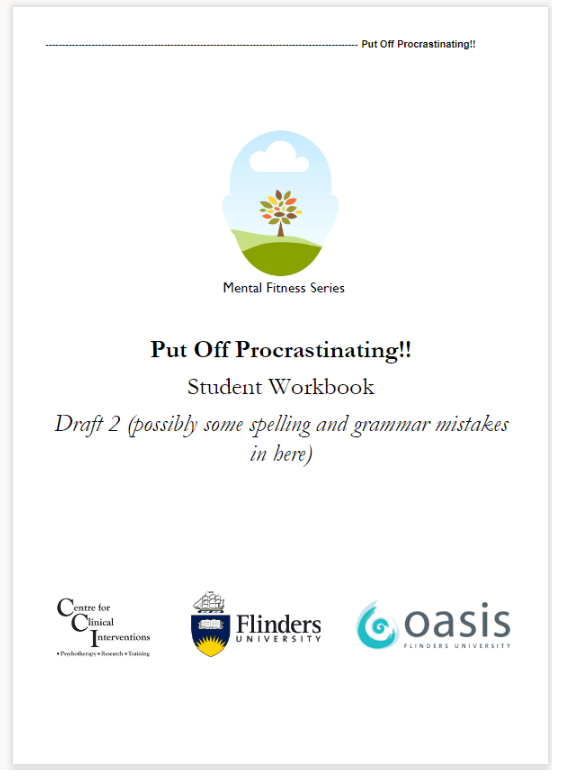
Effective Planning
Procrastination tends to happen at two points. The first is at the beginning of a project when we try to make a start, but the difficulties of the task dawns on us and so we distract ourselves. The problem is the task is far enough away that we don’t yet have the motivation of a ticking time bomb to push us along. The second point is when things get to the last minute and instead of time being a motivating factor, it becomes a source of panic. We try to ease this panic by – you guessed it – distracting ourselves!
As both of these issues stem from the problem of getting started, we need to try to make this process as easy as possible. To do this, we want to make tasks that seem huge and overwhelming feel achievable.
Goal Setting
Having big, abstract to do lists with items like ‘clean the house’, or ‘write an essay’ are not helpful. Why? Because they’re daunting. No one wants to clean the house or write an essay, and the idea of even approaching them can be overwhelming. Besides, where do you even start with huge tasks like that? When we feel this way, we’re way more likely to procrastinate! So, we need to create achievable and realistic to-do lists that will help us build our way up to our goals.
- Write a long-term goal list
- Consider each small step that builds towards that bigger goal. For example, if your long-term goal is to learn the guitar, you need to consider each small steps that will go toward achieving it, such as learning each chord and practicing daily.
- Break down each item into small tasks that are specific and achievable
- Turn these items into a short-term to-do list
- You might consider a daily, weekly and monthly to-do list. Keep them somewhere you can see them.
That day is today! It’s not the 6th, but it’s metaphorically today!
Prioritising
Beating the procrastination monster also means we need to figure out not just what to do but prioritise when we do it. Most days will have a mix of urgent tasks, important tasks, and not-so-important tasks. Urgent tasks are those that need to be done immediately. Important tasks are those that, if you start now, are less likely to become last-minute urgent tasks. Non-important tasks are those that we should do, but there won’t be consequences for not doing immediately. These are the things that can tend to become fodder for ‘proactive procrastination’.
- Grade each task on your to-do list as urgent, important or not-so-important
- Estimate how long each task will take you (try to be realistic!)
- Create a daily to-do list based on this prioritised list
- If you don’t get everything done, that’s okay! Write the remaining items on tomorrow’s list and consider whether they’ve moved up the prioritisation food chain.
A word of warning: creating elaborate plans can be a form of proactive procrastination. Try not to be consumed by the planning task itself, because this can become just another way of putting things off!
Give yourself clear time frames
Once we have some achievable goals, we then need to actually set aside time to do them. I’ve talked before about setting aside specific study sessions of about two hours each. Within these, we can break them down even more. Research shows that 20 to 45-minute time intervals can maximise our attention and mental activity if followed by a short break. It encourages consciousness, concentration and clear-minded thinking. If you’re a particularly bad procrastinator, even just 5-10 minutes of solid work can be a really good start. Often that is enough time get a little bit engaged with the task and feel energised to work longer.
The Pomodoro Method
The Pomodoro Method breaks up time into 25-minute chunks with 5-minute breaks. It’s a bit like doing interval training at the gym – work hard for a short burst, get a break, then get back to it. Every four Pomodoros, you can take a 20-minute break.
What I like about this method is that 25 minutes is a short enough period that it doesn’t feel overwhelming, and it’s enough time to tick a small goal off that list. During these 25 minutes, it’s important to away distractions. Close browser tabs that aren’t relevant, put your phone on silent, drop the snack, and just work! The feeling of knowing that you can check all that stuff when the timer runs can make a huge difference to your focus. You’re not forbidding yourself; you’re just restricting yourself. Then, when your 25 minutes is up, go for it. Check your notifications, go to the fridge – do whatever!
Know Yourself
For some of us, having small goals and some set aside study time isn’t enough. We can’t be trusted. We’ll still find ourselves mindlessly scrolling Instagram or creating elaborate Spotify study playlists. So here’s my last big tip: know thyself!
Pay attention to the things that distract you most and make a plan for overcoming them.
- Find yourself browsing Reddit or YouTube for too long? Turn off Wi-Fi during your study sessions or use apps and programs to block access to websites
- Keep getting distracted by notifications flashing up on your iPhone? Put it on airplane mode
- Accidentally binge-watching Netflix? Turn off auto-play (yes, it’s a thing! You can do that!)
- Keep pushing back your study sessions? Set an alarm on your phone
- Can’t keep yourself on track? Email your goals to a friend to make yourself accountable
Maybe like this discount Brendan Fraiser you need to put your phone on airplane mode
Reward Yourself
If you can keep yourself on track and complete a task, remember that you can enjoy free time without guilt or anxiety. This is because you’ll know that your rewards are deserved, and those icky guilt feelings can be put to bed.
You can also use rewards as motivators. Once you’ve ticked off a few urgent and important items from your to-do list, allow yourself freedom to do what you want. Watch some Netflix, bake a cake, get into a Twitter feud – whatever rocks your boat. Remember to enjoy it and notice how much better you feel doing these activities without all that work hanging over your head!
Sideth
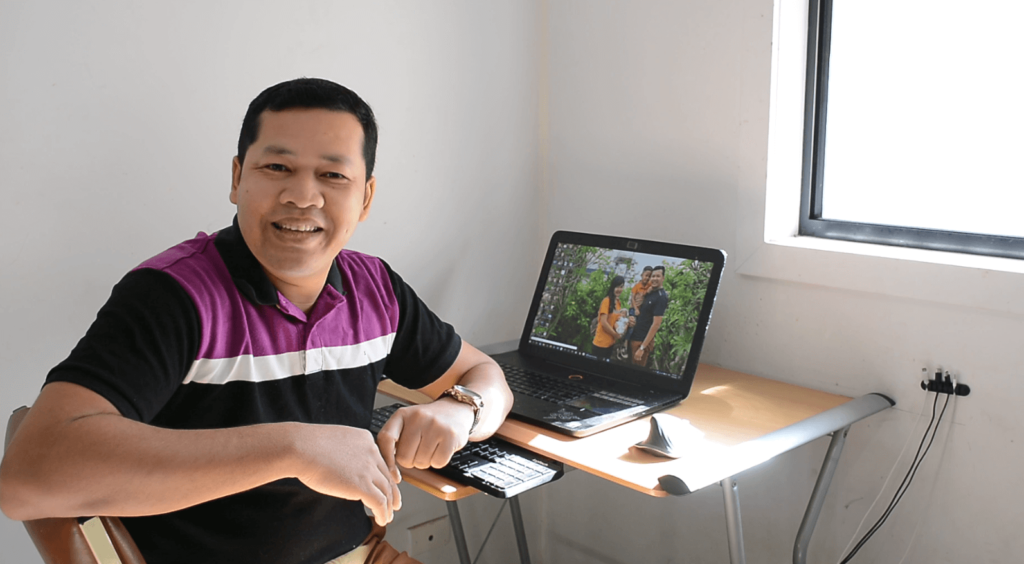
Procrastination has always been an issue for me, for example, in completing my assignments I find it very challenging because I don’t know what to do or it’s overwhelming. Sometimes I find it difficult to get started and all day long I keep thinking about it, so I feel stress.
The way I deal with procrastination and completing my assignment is to break it down into small tasks and give each task a deadline. Also, I keep telling myself that I want to do it so it makes me feel better.
Indianna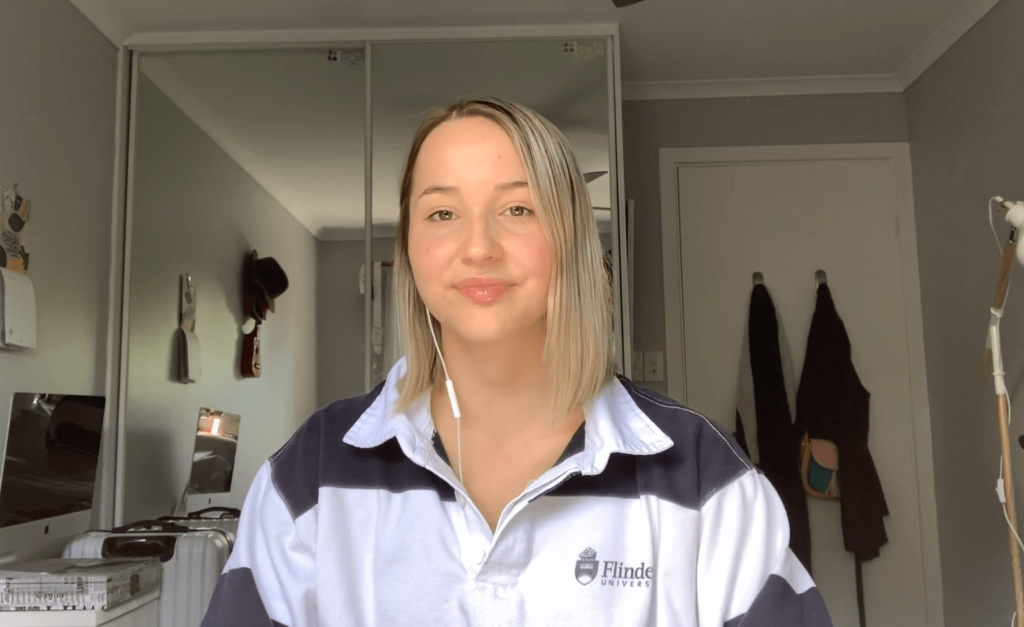
I’d say I really stared understanding my procrastination and being able to overcome it when I understood where it was coming from. I did a topic last year at uni called ‘The Psychology of Thriving and Surviving’. By doing that module, I recognised that a lot of my procrastination comes from these unrelenting high standards that I’ve always set for myself. Because I set these standards that I’m never quite going to achieve, I’m associating all these negative feelings with study and never really feeling good about what I’ve done, even when I’m doing well.
Now, I’ve tackled that by being quite forgiving with myself when I’m not quite achieving to a certain level, I’ve reduced some of the standards that I’ve set for myself, I break up goals that I’m trying to achieve so that I’m only trying to tackle small things at a time, I celebrate wins as I go, and have three available tasks a day, so I’m always plodding away at things. I still get to do all the fun stuff I want to do, but I’m still getting a little bit done, chipping away at that mountain of work that I’ve got.
Sean
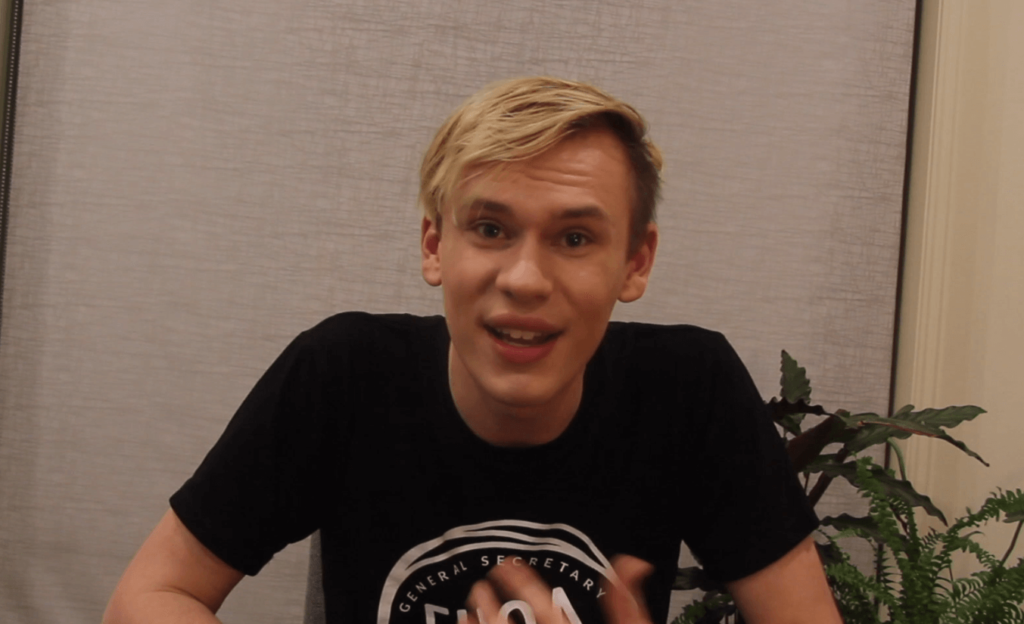
Normally procrastination is one of the biggest things, but I procrastinate by doing other work. So I start other projects and initiatives which means I start all these other things that I’m really passionate about and if there’s an essay I’m not particularly keen on, it becomes the last thing that I do, which means it’s very hard for me to submit it.
Since being at home, I think I’ve actually been forced not to procrastinate because I don’t have options. It’s like, all the other projects I’m working on are gone so I guess I should study? So I think I’ve actually improved my study habits, strangely, but procrastination is still a problem and I still have lectures to catch up on. But, I’m working hard on it and hopefully I’ll catch up!
Keep Going!
It’s important to note that while these techniques can definitely help, there’s no magic fix for procrastination, or for actually doing the work. That part is always going to be hard. At the end of the day, the most important thing that will help you overcome procrastination is your attitude and your commitment.
If you’ve tripped up and find yourself having a bad procrastination day, that’s okay. You can always try again. Make a new plan, reset that Pomodoro timer, and get back to it. Just because you might fail once, it doesn’t mean this is something you should give up on.
Resources:
As I said at the top of the vlog, procrastination is a very complex issue. If it’s something you truly struggle with, here are some resources that might help:
Firstly, here’s some links to Dr Gareth Furber’s Procrastination series: https://blogs.flinders.edu.au/student-health-and-well-being/2017/07/25/procrastination-part-1/
Don’t forget to join Oasis on FLO for the Mindfulness for Academic Success and Studyology series: https://flo.flinders.edu.au/course/view.php?id=63157
The Centre for Clinical Interventions also has a fantastic workbook for learning more about procrastination with tools to help overcome it: https://cci.health.wa.gov.au/Resources/Looking-After-Yourself/Procrastination
They also have a similar workbook about perfectionism, a close and unfriendly cousin of procrastination: https://www.cci.health.wa.gov.au/Resources/Looking-After-Yourself/Perfectionism
I also really like this post from the blog ‘Wait, But Why’. It breaks down why procrastination is such an issue into easy to understand language and has some great diagrams that help explain what’s going on in your brain: https://waitbutwhy.com/2013/10/why-procrastinators-procrastinate.html
Tim Urban, the author of that blog, also did a TED Talk about procrastination. Check it out here: https://www.ted.com/talks/tim_urban_inside_the_mind_of_a_master_procrastinator/transcript?language=en


